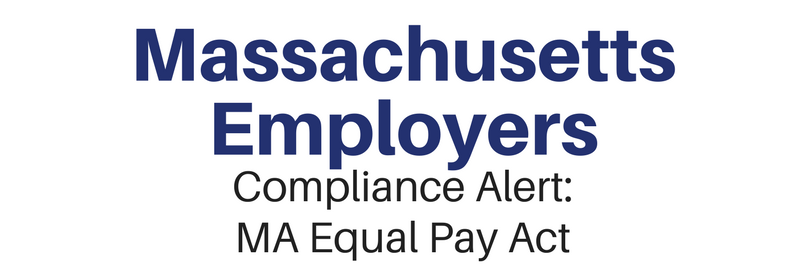Notice to Massachusetts Employers

[gdlr_heading tag=”h2″ font_weight=”bold” ]Massachusetts Equal Pay Act[/gdlr_heading] The Massachusetts Equal Pay Act goes into effect on July 1, 2018. It calls for all Massachusetts employers, irrespective of size, to pay men and women the same for comparable work. The law imposes strict liability, i.e., even if one believes in good faith that they are compliant but […]